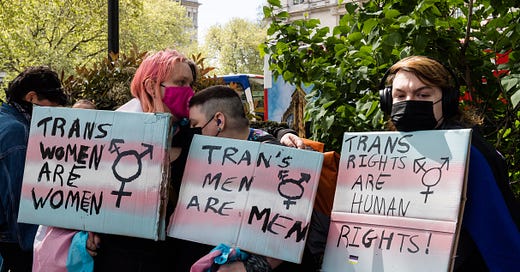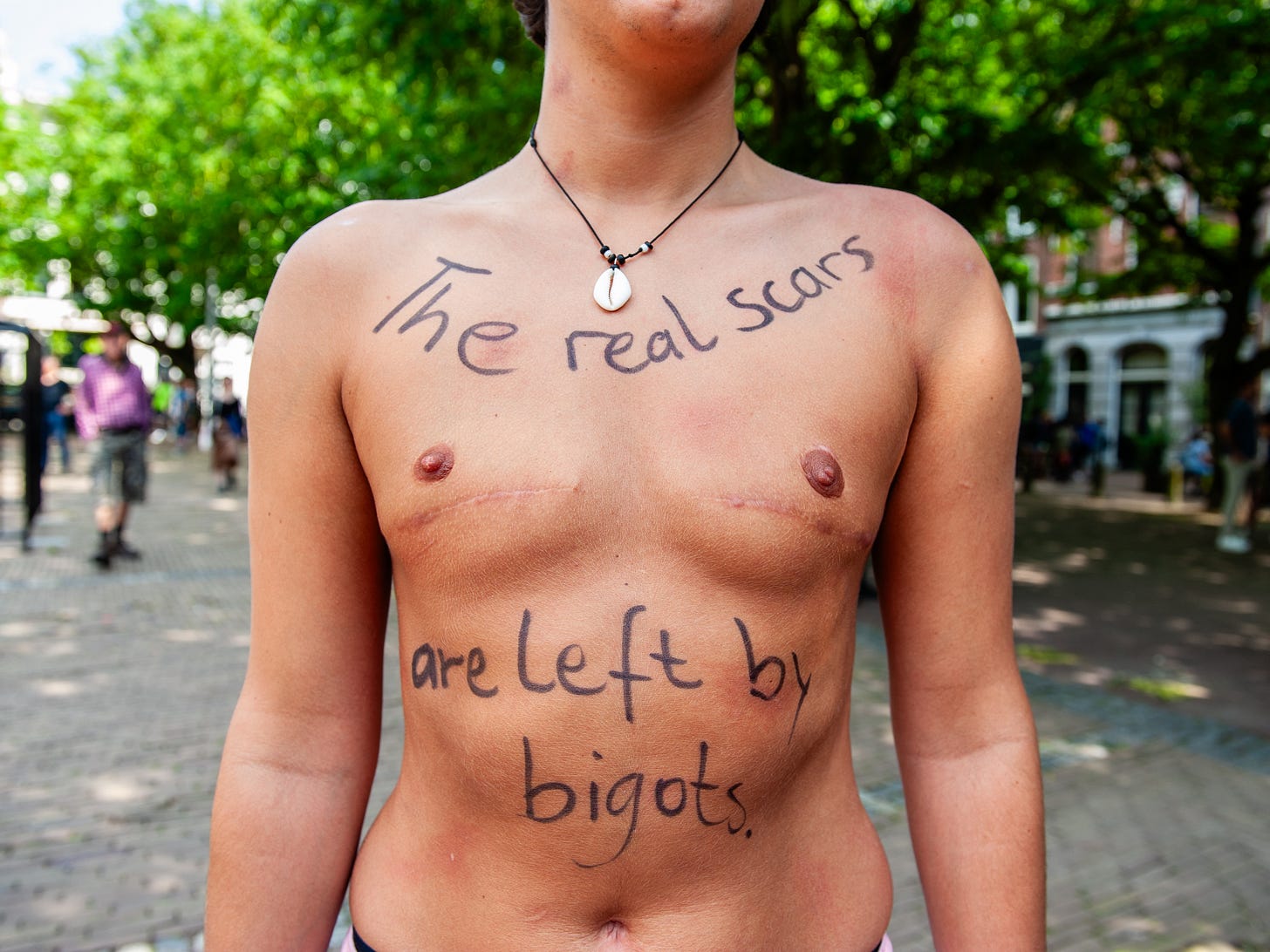Transsexual: we used to use that word, back in the day
I have been writing about gender madness for more than two decades, and this one, from 16 years ago, popped into my head. Interested to know your thoughts
In 2009, my article entitled The Operation That Can Ruin Your Life was published in a magazine called Standpoint, which ran between 2008 and 2020. The article caused a huge stir, and was shared extensively by trans activists on forums, blogs, and emerging social media sites.
I have decided to re-publish the piece, 16 years later in order to look at how some things have changed when it comes to the gender madness, whilst some remain the same.
Back then, I used the terms ‘transsexuality’ and ‘transsexual’, which no one, as far as I can see, objected to. When did ‘transgender’ replace it? Presumably it was to further embed the notion that gender is innate and biological sex, fluid?
It’s also telling that I was able to quote a big piece that had appeared in the Guardian in 2005 which focussed on more than 100 studies of “post-operative transsexuals”. University of Birmingham researchers (imagine that being allowed to happen today), found that there was no robust evidence that sex change surgery was effective or had positive outcomes.
I included evidence at the increase of those, mainly men, being diagnosed as transsexual: the year I wrote the piece, there had been more than 1500 new referrals to gender identity clinics in Britain.
Clearly, this rise in numbers had at least something to do with the introduction of the 2004 Gender Recognition Act.
I also dealt with the issue of children being diagnosed as ‘gender dysphoric’: parents were referring children in increased numbers. In 2008 referrals of children to gender clinics in Britain had increased sixfold. And not just in the UK - I found evidence of a 18 month old baby in Denmark who was taken to the gender clinic, and subsequently diagnosed as such.
Then there was the issue of desistance, and the fact that 2/3 of those diagnosed as transsexual would come out as lesbian or gay in later life.
The abuse and threats that those of us speaking out about this from activists, which although pretty nasty at the time, has clearly ramp up a notch or two.
Hope you find it interesting.
Last year (2008), I was nominated for the Stonewall Journalist of the Year award. This seemed fair enough since I write prolifically about sexuality and sexual identity. But I guessed that Stonewall would not dare give me the prize, because a powerful lobby affiliated with the lesbian and gay communities had been hounding me for five years.
Six weeks later I, along with a police escort (ironically, as it turns out, Brian Paddick, now Lord Paddick and a massive trans activist, who was, at the time, a serving police officer), walked past a huge demonstration of transsexuals and their supporters, shouting "Bindel the Bigot". Despite campaigning against gender discrimination, rape, child abuse and domestic violence for 30 years, I have been labelled a bigot because of a column I wrote in 2004 that questioned whether a sex change would make someone a woman or simply a man without a penis. Subsequently, I was "no platformed" by the National Union of Students Women's Campaign, a privilege previously afforded to fascist groups such as the BNP. As a leading feminist writer, I now find that a number of organisations are too frightened to ask me to speak at public events for fear of protests by transsexual lobbyists.
You can listen to my podcast series on Vancouver Rape Relief, here
The 2004 column was about a Canadian male-to-female transsexual who had taken a rape crisis centre to court over its decision not to invite her to be a counsellor for rape victims. Feminists tend to be critical of traditional gender roles because they benefit men and oppress women. Transsexualism, by its nature, promotes the idea that it is "natural" for boys to play with guns and girls to play with Barbie dolls. The idea that gender roles are biologically determined rather than socially constructed is the antithesis of feminism.
I wrote: "Those who ‘transition' seem to become stereotypical in their appearance — f**k-me shoes and birds' nest hair for the boys; beards, muscles and tattoos for the girls. Think about a world inhabited just by transsexuals. It would look like the set of Grease."
Gender dysphoria (GD) was invented in the 1950s by reactionary male psychiatrists in an era when men were men and women were doormats. It is a term used to describe someone who feels strongly that they should belong to the opposite sex and that they were born in the wrong body. GD has no proven genetic or physiological basis.






